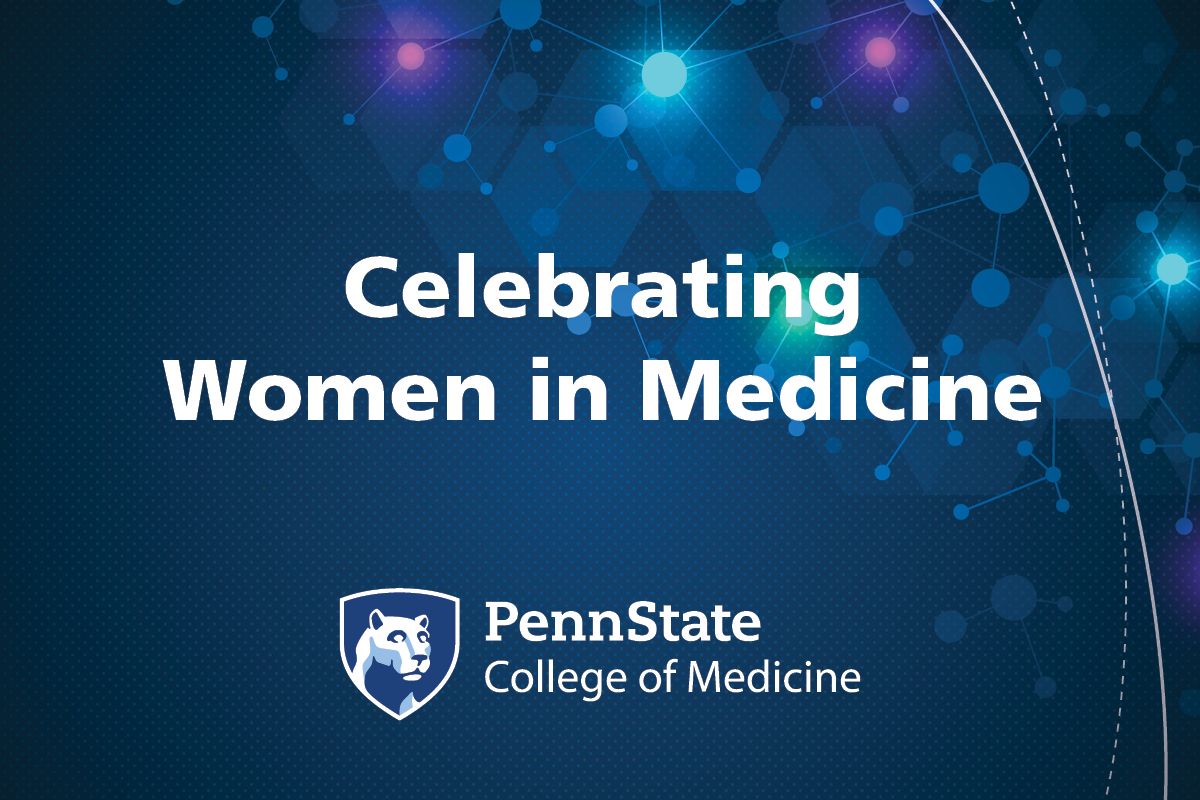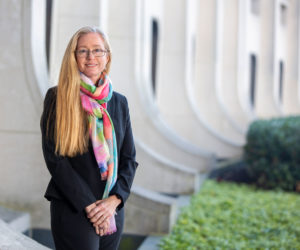Women in Medicine: Patricia Grigson, PhD

September is Women in Medicine Month, presented by the American Medical Association Women Physicians Section. Penn State College of Medicine honors Patricia “Sue” Grigson, professor and chair of the Department of Neural and Behavioral Sciences, in part six of this seven-part series.
Patricia Grigson, PhD, is passionate about her research on addiction and how it can be used to help people who are struggling with drug and alcohol issues.
As a professor and chair of Penn State College of Medicine’s Department of Neural and Behavioral Sciences, she studies the brain’s role and how it changes in individuals with a substance abuse disorder.
She is a leader in the field and director of the Penn State Addiction Center for Translation. During the past 31 years, she has received continuous grant funding totaling more than $15 million from the National Institutes of Health and the Pennsylvania Department of Health Tobacco Settlement Funds.
She also has published nearly 100 peer-reviewed manuscripts. When she looks back at her career and research, she knows her successes are due in large part to hard work and to the confidence she has gained from overcoming challenges. In the process, she also has proven some people wrong.
“I can think of several times when I was underestimated, and people tried to steer me away from a career as a scientist,” she said. “I knew that was what excited me and I just needed to prove myself.”
Discovering her love for science
The early story of Grigson is not typical of many people who end up devoting their careers to science. She admits she was “a bit behind” in high school and did not get good grades in science or much of anything else.
Years later, at a high school reunion, when she told a former classmate about her research, the surprised woman blurted out “you were no good at science!”
While an undergraduate studying psychology, Grigson became interested in the workings of the brain. When she decided to go to graduate school at Rutgers University and focus on the brain and behavior, professors told her she needed more science classes. She had to prove to them that she could catch up and was serious about studying neuroscience.
“I worked really hard,” she said. “I remember late nights alone in the lab, reading everything I could, taking notes, drawing tables, graphs and diagrams. It was very exciting! I knew I had discovered my passion and that would drive me.”
The heart of mentoring
Along the way, Grigson found mentors who gave her strength and confidence by helping her talk through challenges. The two at the top of her list were her grandmother and mother, who with nine daughters between them, expected them to advocate for themselves. A second great mentor was Ralph Norgren, now Emeritus Professor at Penn State College of Medicine, who told her at the age of 21 that “confidence comes with experience.”
Today, Grigson is a mentor herself and keeps in mind what helped her when she was starting her studies and career.
“One of the most important goals is to give mentees time,” she said, “and to recognize that each student is unique and has individualized gifts that should be nurtured.”
Secrets to success
Advice she passes on to students includes: believe in yourself, be willing to learn, think differently and seek help when you need it. The mother of twin teenage sons says life with a family can be a balancing act, but that should not scare women away from having both a family and a fulfilling career if that is what they want.
One area where many women need to improve is in negotiating a salary and the details of a position, she added.
“It’s really important to ask for what you need. That’s sometimes hard for women,” she said. “But you can’t be successful without it.”
If you're having trouble accessing this content, or would like it in another format, please email Penn State Health Marketing & Communications.

